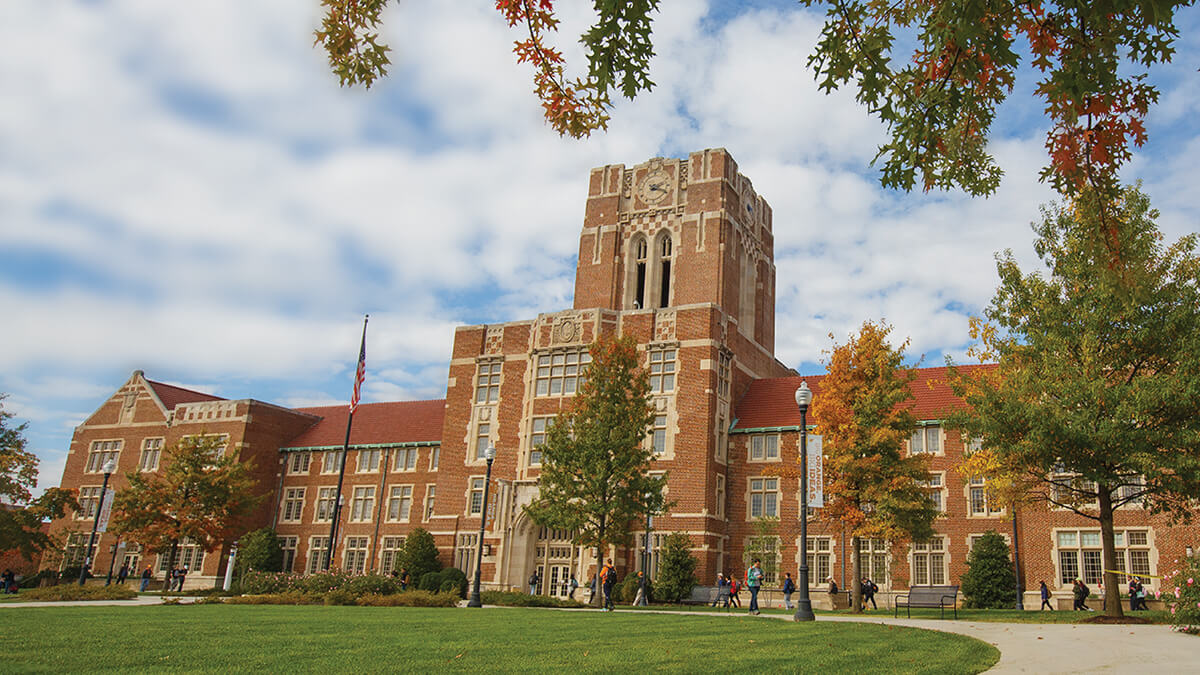Unions exist in Tennessee, but they are hindered by the hostility of not just management but also by state government.
As we’ve previously noted, “two thirds of all unionized faculty are located in five states that have historically been supportive of organized labor: California, New York, New Jersey, Illinois and Michigan.” To fully address the decline of shared governance, as well as the decline of faculty tenure, faculty need to extend their efforts well beyond union strongholds. In that spirit, we are excited to publish Bob Hutton’s piece on faculty union activism in a right to work state (in this case, Tennessee).
The state of Tennessee has a rich history of organized working people. However, in 1947 the state adopted one of the first so-called “right to work” laws in the United States (this, at a time when Tennessee was arguably the most industrialized state in the South). Accordingly, as has been the case in most other Southern states, Tennessee labor unions have remained weakened ever since. Unions exist in Tennessee, but they are hindered by the hostility of not just management but also by state government. Between 2000 and 2005, the percentage of the state’s workforce represented by a union dropped from roughly 10% to 6.5%, where it has hovered ever since.
The population’s working population is harmed not just by low union density, but by the state’s regressive tax system. Tennessee has no income tax, and it has the second highest sales tax in the nation. This undermines Tennessee’s retail economy, since it borders eight states, most of which have considerably cheaper gas, groceries, and other necessities. According to the U.S. Census, while 15.5% of all Americans were living at or below the poverty line in 2015, the poverty rate in Tennessee was 17.6%.
Not surprisingly, the lowered living standard in Tennessee affects not just private sector but also public sector employees, most notably on the campuses of our public universities and community colleges. College campuses remain a space where inequality is laid bare in the plainest, most obvious ways, especially as students have been faced with tuition increases and lowered expectations of employment after school. At the same time, Tennessee’s campuses remain spaces of idealism, and united efforts between, students, faculty, and staff.
Organizing Higher Education in Tennessee
In 1999, a University of Tennessee (UT) student group called Alliance for Hope united with local factions of Jobs with Justice and the Tennessee Industrial Renewal Network to form a living wage campaign for UT workers. The organization branched out into other matters of concern for campus workers aside from pay. In 2000, the coalition forced the administration to provide free hepatitis B vaccines for campus housekeepers and maintenance workers. Soon thereafter they won huge percentage-based pay raises, including a 12% raise for UT’s lowest-paid employees.
As faculty and other UT employees took notice, the new organization grew into an organization called the United Campus Workers (UCW) by the end of 2000. UCW was a rarity among campus unions. Working outside of state collective bargaining laws that define bargaining units according to craft, UCW created a wall-to-wall “one big union” of campus workers. Professors, office workers, contingent faculty, facility workers, work study students and anyone else who drew a paycheck from the university could find common cause. At the end of 2000, the newly-formed union organized a march of students, university employees, and community allies to protest forced overtime.
In 2003, UCW affiliated with the Communication Workers of America (CWA), and officially became UCW-CWA Local 3865 (the ‘865’ derived from the area code of eastern Tennessee). By 2009, UT administrators were meeting with UCW-CWA officers regarding employee insurance cases, and acknowledging said officers as union representatives rather than just “concerned university employees.” This, by itself, was a major victory.
Resisting Tenure Decline and Outsourcing
Our state government’s hostility to organized labor has arguably increased since the UCW’s early-days successes in gaining cost-of-living raises. In 2015, UT president Joe DiPietro fielded to the board of trustees the concept of “de-tenuring” faculty to solve alleged revenue problems. Reports of DiPietro’s proposal galvanized UT faculty, and prompted tenure-track faculty to join UCW-CWA in unprecedented numbers. DiPietro later walked back his statement, but the current climate has convinced many professors that their lot may soon be cast with their contingent colleagues. The seeming tenure emergency, and the resultant interest in organizing, was also an opportunity for faculty to learn more about the low pay and tenuous employment situation of many of the staff they depended upon.
In the last two years, UCW-CWA’s greatest challenge has been the ongoing campaign to prevent the out-sourcing of campus jobs. Since 2015, Tennessee governor Bill Haslam has pushed to hire out many state jobs, particularly campus facility services, to the property management firm of Jones Lang LaSalle (JLL), a company in which the governor is personally invested (Haslam, a billionaire, is the one of the wealthiest elected politicians in the U.S.). Haslam contends that out-sourcing will reduce operating costs, although many observers— including very fiscally-conservative members of the Tennessee legislature— remain skeptical. UCW-CWA, Jobs with Justice, and other allies believe that outsourcing would produce a net loss of jobs in one of the nation’s poorest states, and would lower quality of service on our campuses. Further, JLL employees would receive reduced income and health benefits than actual state employees, thus increasing the burden placed on the state to provide them with food stamps and other social services. Such a shift would make state employment more like the fast food service economy. Contingent faculty at UT suspect that an analogous plan might be attempted with their own jobs in the future.
UCW-CWA brought Haslam’s outsourcing plan to light two years ago and have been fighting to prevent it ever since. In 2016, UCW-CWA members converged on the state capitol from all over Tennessee to announce their opposition and un-scroll a petition signed by thousands of Tennesseans who knew that outsourcing would damage their communities. The next year, UCW-CWA led a rally of hundreds outside of the Tennessee Office of Customer Focused Government in Nashville, the state organization behind the secretive agreements made with JLL.
As of early August, 2017, the outsourcing plan has not been completely defeated, though it is certainly not the success the governor planned. UCW-CWA still struggles to make the public aware of Haslam’s backroom plan. In the meantime, our fight against the privatization of public sector jobs has increased the union’s public profile immensely. Tennessee politicians who would otherwise refuse to cooperate with organized labor in any way, shape, or form, have become allies of UCW-CWA once they realize the possible effects of outsourcing in the districts they represent.
UCW-CWA currently has more than 1,700 members on eighteen campuses all over the state. Three of these campuses have over a hundred members each and, according to union bylaws, have formed their own respective chapters. UCW-CWA has gained membership at other branches of the University of Tennessee in Memphis, Chattanooga, and Martin, as well as Tennessee Board of Regents schools (four-year universities which are now “independent”, with Boards appointed by the Governor due to a major restructuring under his administration) all over the state.
Following nationwide trends, Tennessee higher education became more and more reliant upon part-time and adjunct instructors over the course of the first decade of the twenty-first century. The decrease in tenure protection for educators has proven a challenge to those who have decided to dedicate their lives to higher education in Tennessee. However, it has ironically given them an opportunity to find common cause with the custodians and groundskeepers that make higher education possible. In this sense, UCW-CWA has inadvertently benefited from being in a state whose government is historically hostile to organized labor.
Toward Faculty-Staff Solidarity
On its exterior, the experience of UCW-CWA in one of the least-unionized states may not seem instructive to the vast majority of contingent faculty struggling to organize and bargain on countless campuses all over the United States. After all, contingent faculty make up a minority of our rank and file, and are not the most active segment of its members. In states where contingent faculty can bargain collectively, the enabling legislation for public sector employees is likely to limit faculty-staff solidarity by separating them into different bargaining units.
But where UCW-CWA can be instructive and even inspiring is for those at private institutions, and at public institutions in states where public sector employees do not have collective bargaining rights. UCW-CSW has developed common cause between staff and faculty, and developed campaigns that make that solidarity tangible. Our wall-to-wall organizing demonstrates the interdependent nature of higher education: students and educators need a safe, clean, efficient work environment, and staff members make their respective livings by maintaining it. At the same time, the very existence of a university provides not only jobs, but community cohesion for a middling city like Knoxville, metroplexes like Memphis and Nashville, or the small towns that dot our state. We are all in this together, and our modicum of a “one big union” plan might not have been possible if we worked in an environment where organized labor was easier to maintain.
Unfortunately, when it comes to hostility to unions, the rest of the U.S. is becoming more like Tennessee than the other way around. UCW-CWA may very well represent the future of organized labor. In recent years, the UT administration has adopted a new motivational slogan: “Big Orange, Big Ideas.” Although the administration might think otherwise, UCW-CWA is probably this university’s biggest idea to date.




1 Comment
Comments are closed.